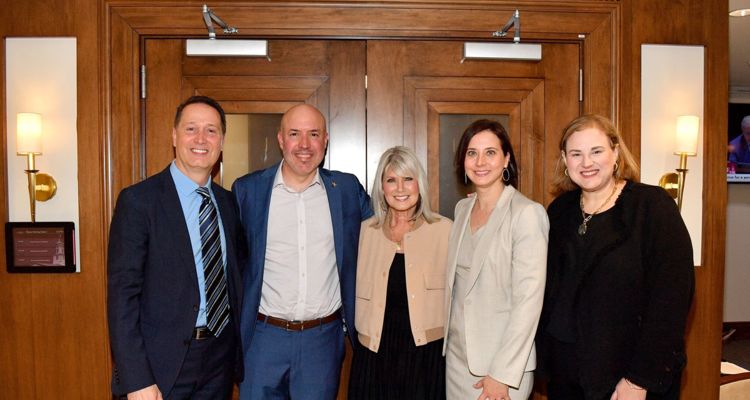
Photo Credit: Jason Davis / The Recording Academy
The ELVIS Act aimed at addressing the use of AI in music has unanimously passed both the Senate and House Commerce Committees in Tennessee. Here’s the latest.
The Ensuring Likeness Voice and Image Security (ELVIS) Act moved forward after compelling personal testimony from artist-songwriters Natalie Grant, Matt Maher, and David Hodges. The legislation was introduced by Tennessee Governor Bill Lee last month, with sponsorship from State Senate Majority Leader Jack Johnson and House Majority Leader William Lamberth.
“Every day there are new stories about deepfakes and AI-cloned voices and images that manipulate someone’s likeness without their consent,” Natalie Grant says. “This is not just a problem that effects celebrities, this is a human problem that affects us all.”
“My voice and image set me apart, and it is part of what defines me as an individual,” Matt Maher told the Committee. “It also drives my career. When others use artists’ voices and likeness without consent, that is a personal and fundamental violation that strikes at the heart of who we are and what we do.”
“As a professional songwriter, syllables matter. A single note can change a song. For artists their delivery is part of their brand. They carefully choose the songs they record and release,” adds David Hodges. “By adding the word ‘voice,’ the ELVIS Act modernizes current law and makes it crystal clear that unauthorized AI-generated fake recordings are subject to legal action in Tennessee.”
“Today’s action is a huge step forward toward establishing Tennessee as a leader on thoughtful guardrails for AI,” adds Human Artistry Campaign Senior Advisor Dr. Moiya McTier. “As AI-generated deepfakes invade and steal what makes each of us unique, individual protections for our voices and likenesses like those in the ELVIS Act are urgently needed.”
Tennesee’s music industry supports more than 61,617 jobs across the state, with the industry contributing $5.8 billion to Tennessee’s GDP. With more than 4,500 music venues located in the state, the legislation takes aim at protecting ‘voice’ to build upon existing state rules protecting name, image, and likeness.

